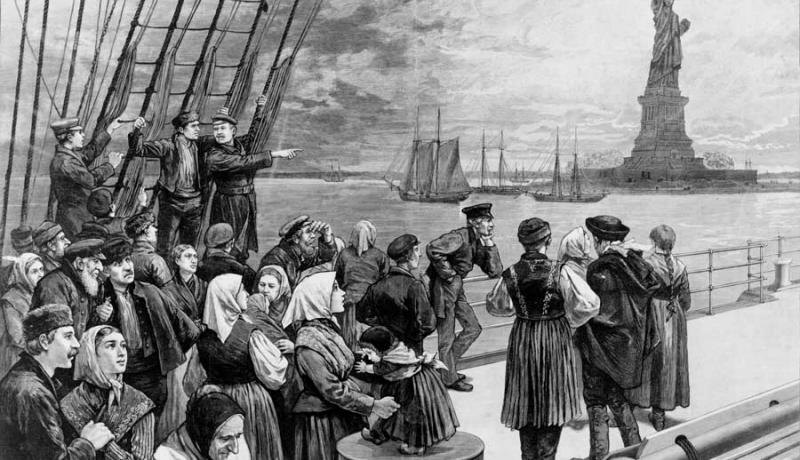There's still time to enroll for our Winter Intersession and Spring 2025 semesters in both undergraduate and graduate programs. Ready to Elevate YOUR Life? Apply Now!
Already a student and need to register for Spring classes? Register now! Contact an academic advisor today at 201-200-3300 or uac@njcu.edu or schedule a virtual appointment with an advisor!
The Sacrifice

Since 1972, the English as a Second Language Program (ESL) at NJCU has been providing academic language instruction for students from dozens of countries around the world. Working with this population of mostly recent immigrants from so many nationalities, language groups, and cultures has given me a deep appreciation for the diversity, work ethic, and determination of people who have made tremendous sacrifices by leaving home, family, and friends to begin life anew in the United States.
In the composition courses I teach, I often ask students to write about a person whom they consider to be successful. In many cases, that person is a parent who had established in his or her own country a successful life—often against great odds. Yet, despite their success, this parent chose to leave everything behind so that his or her children (my students) might have a better chance of success in the future.
When those parents looked to the prospects their children might face in their home countries, they saw a bleak picture. In places where many of our immigrant students come from—Latin America, Egypt, India, and Africa—the economies are in shambles and opportunities such as entry into a university and/or a profession are too competitive and costly to be practical. In many cases, job markets are also plagued by corruption, ethnic prejudice, violence, warfare, government instability, natural disasters, and unemployment rates in excess of 25 percent. When one knows these facts, it is easy to understand why a parent might make the difficult decision to leave an established career and take a chance to start again in a new land.
Parents who had established themselves as doctors, lawyers, engineers, accountants, and teachers in their own countries arrive in the U.S. only to find their professional credentials no longer valid. Some return to school and become recertified according to American standards; for the most part, however, the language barrier combined with the needs of supporting a family make this path impossible.
As a result, former professionals are working as Uber drivers, restaurant employees, babysitters, store clerks, and maintenance workers. In other words, they gave up a lot to enable their children to have the opportunity to achieve an education and career that would have been impossible back home. They have given up comfortable lives, family, friendships, and social status to enter a world where they are now seen as foreigners, the poor, and objects of scorn and suspicion.
So when I think about the xenophobic and anti-immigrant rhetoric emanating from Washington, it makes me sad, angry, and frustrated. The narrative of rapists, criminals, and terrorists has eclipsed the narrative that I know to be true, that of very hardworking people who have sacrificed everything for their children’s future—just as my own immigrant grandparents did for my parents.
Very likely a similar story of immigrant sacrifice exists among the parents or grandparents or great-grandparents of everyone reading this post.
Yet despite the current atmosphere, I remain hopeful. Immigration has been at the heart of this country’s foundation, growth, and success. Antagonism toward immigrant groups is nothing new. We have endured many episodes of anti-immigrant sentiment throughout our history as evidenced by the anti-Irish “Know Nothing” Party, the Chinese Exclusion Act, the Japanese internment camps, and the refusal to accept Jewish refugees from Nazi Germany. However, these moments in our history, dark as they are, do not define us. They are passing moments spurred on by prejudice, ignorance, fear, and lies, often exacerbated by leaders who take advantage of human weakness and insecurity for their own political gain.
If history is any guide, this noise now emanating from Washington will not last. Sooner or later, people will come to remember what they have known all along—that we are, and will always be, a nation of immigrants. We are stronger and safer as citizens of the world as opposed to when we hide behind walls, or cast aspersions on those who ask nothing more from us than a chance to survive, to do what is best for their children, and to live in peace. We will endure and return to a place of reason and sanity because, in the words of Dr. King, “The arc of the moral universe is long, but it bends toward justice.”